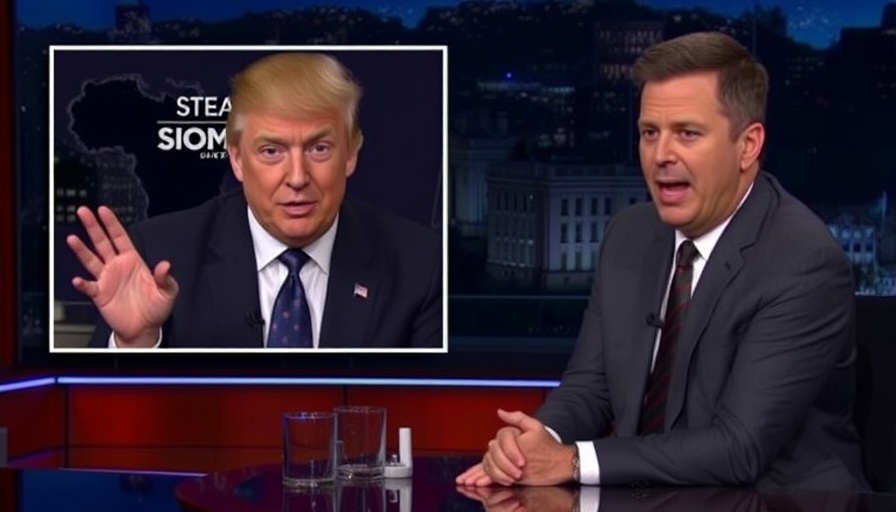
The Current Cultural Climate: A Storm of Controversy
Jimmy Kimmel's recent commentary on the chaos labeled 'Signalgate' unveils much more than a political scandal; it reflects the vulnerabilities of the modern information age. As the late-night host articulated, the situation showcases 'a perfect storm of incompetence, inexperience, dishonesty, and hypocrisy,' which resonates deeply with a growing concern over transparency among public officials. Kimmel’s analysis aptly captures the dissonance between what government agencies espouse and what they practice – a theme prevalent not just in U.S. politics but across the globe.
Connecting Pop Culture with Political Narratives
For digital nomads and culturally-minded individuals, the intersection of politics and pop culture is particularly intriguing. Kimmel's quips evoke a shared sentiment: that of disappointment tinged with humor in light of recent government missteps. As he noted about the Signal chat involving war plans shared with a journalist, the reality is alarming: senior officials are engaging in behavior that contradicts their public messaging. This raises critical questions about the integrity of information dissemination in the digital age. If even sensitive topics like national security can be leaked so carelessly, how can we trust anything we consume from any media source?
Rethinking Transparency and Media Accountability
Kimmel further articulated a sense of betrayal when he stated that, unlike the relentless scrutiny placed upon their political opponents, many in the administration often evade accountability. He slyly remarked, 'If this is a non-story, why are you all still covering this story?' This rhetorical question reveals a vital truth about the design of contemporary media and its entanglement with political rhetoric. For young audiences who consume these late-night shows, the repeated punchlines land harder because they aren’t just jokes — they’re a commentary on civic disengagement and media complicity.
The Role of Humor in Understanding Politics
The humor Kimmel employs serves a significant purpose: it offers a coping mechanism amid a climate where dishonesty seems to be glorified. Stephen Colbert echoed this sentiment by noting that 'no one is buying the administration's excuses.' This kind of humor acts as a vital critique of the status quo, allowing viewers to engage with otherwise heavy topics through laughter. For those traveling or living in different cultural settings, understanding humor helps them better grasp prevailing sentiments around governance and public life.
Lessons From 'Signalgate' for Future Transparency
As digital nomads navigate various corners of the globe, the lessons gleaned from 'Signalgate' extend beyond American politics. Transparency issues are omnipresent in every field, from environmental policy to international relations. The mixture of media coverage and audience perception shapes how we view governance. For example, Kimmel's reference to a national security official using a public Venmo account illustrates not just individual folly but a systemic lack of oversight that could be reflected in any government system worldwide.
Implications on Cultural Dynamics
In an age where information is readily available but often sensationalized, it becomes increasingly important for individuals to maintain a critical lens. Kimmel’s sharp observations spur conversations not just about American politics but about the global political landscape – and the importance of maintaining integrity in information. Humor becomes a tool to dissect these dilemmas, creating pathways for deeper reflection among audiences.
 Add Row
Add Row  Add
Add 




Write A Comment